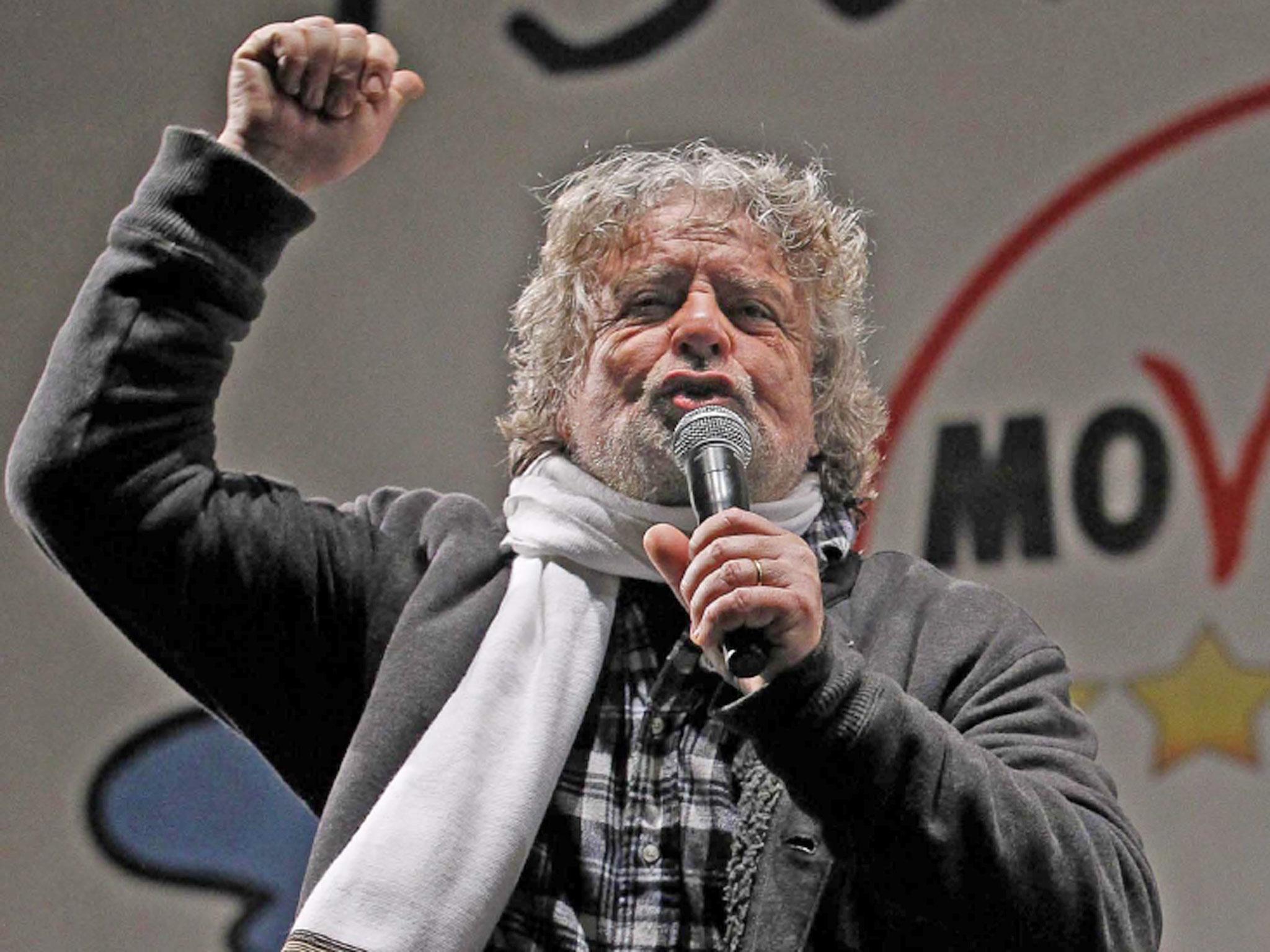Italy's centre cannot govern without the support of populist parties
The anti-establishment Five Star Movement, whose success is built on the Italian population’s anger over the country’s economic situation and a hardline stance on corruption, beat pre-vote expectations and will be the single biggest party. The darker anti-immigration La Lega also appears to have done better than expected


Your support helps us to tell the story
From reproductive rights to climate change to Big Tech, The Independent is on the ground when the story is developing. Whether it's investigating the financials of Elon Musk's pro-Trump PAC or producing our latest documentary, 'The A Word', which shines a light on the American women fighting for reproductive rights, we know how important it is to parse out the facts from the messaging.
At such a critical moment in US history, we need reporters on the ground. Your donation allows us to keep sending journalists to speak to both sides of the story.
The Independent is trusted by Americans across the entire political spectrum. And unlike many other quality news outlets, we choose not to lock Americans out of our reporting and analysis with paywalls. We believe quality journalism should be available to everyone, paid for by those who can afford it.
Your support makes all the difference.Italians wake up on Monday morning to find out that the future of their government is still as unclear as before their votes were counted.
It is obvious that there will be the need for a coalition, as polling had suggested for weeks, and the identity of the country’s next prime minister is still somewhat of a guessing game. It will probably be weeks before the political horse-trading is finally finished and whatever government is finally formed can get down to business.
However, some major changes have taken place. While Italy is no stranger to political uncertainty, the rise of the populist parties – which may have taken as much as nearly 50 per cent of the vote when all is said and done – is a shot across the bows for the traditional centre-left or centre-right parties that have formed the foundation for decades of Italian government.
The anti-establishment Five Star Movement (5SM), whose success is built on the Italian population’s anger over the country’s economic situation and a hardline stance on corruption, beat pre-vote expectations and will be the single biggest party. The darker anti-immigration La Lega, or League – formally known as the Northern League – also appears to have done better than expected. Those two parties will ensure two things in the aftermath of the election. The first is that neither Silvio Berlusconi’s centre-right Forza Italia or the centre-left Democratic Party (PD) of Matteo Renzi are likely to have enough support to create a government that reflects the election without support from at least one of the populist parties.
The second is that one of the major issues of the election – immigration – will still be front and centre. Both parties had called for hardline approaches on the issue. La Lega had called for mass deportations, something their coalition partner Forza had also called for, while the founder of 5SM, Beppe Grillo, has also said undocumented migrants should be expelled from Italy. The party’s current leader, Luigi Di Maio, has likened sea rescues of refugees and migrants as a “sea-taxi service” that must be stopped immediately. The fact that 5SM looks to have gained about 32 per cent of the vote, and La Lega around 18 per cent will only spread fear among the communities such measures would affect.
Forza also looks to have garnered around 13 per cent, but with its right-wing coalition partners the far-right League and the Brothers of Italy, it will end up with around 37 per cent of the vote and will probably try to take the first stab at convincing others over to its side to form a government. In terms of other coalitions, 5SM would have the most options, but it is hobbled by the fact the party leadership has made so much noise about not wanting to be in a coalition.
If that position changes, they have issues in common with La Lega, not just immigration, but a healthy scepticism of the European project. But, many of their more left-leaning voters would hate a link-up with La Lega. 5SM could also reach out to the centre-left, but would the PD, previously the ruling party, agree to take a junior role in such a partnership? The PD will feel demoralised after a poor showing in the election, despite possibly being the second biggest single party overall, and such a deal might be a step too far.
Join our commenting forum
Join thought-provoking conversations, follow other Independent readers and see their replies
Comments